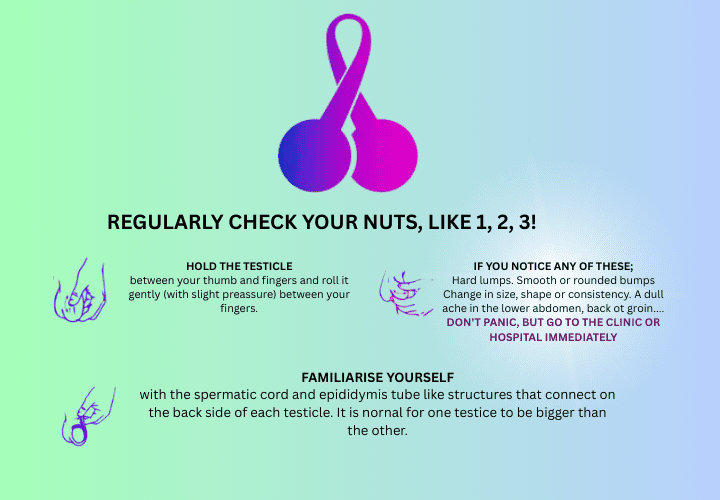What to Know About Navigating Cancer Care With a Disability

What to Know About Navigating Cancer Care With a Disability
- onco
- June 13, 2023
Receiving a cancer diagnosis is a life-altering event that can bring about numerous challenges. However, when faced with cancer and also living with a disability, navigating the complexities of cancer care becomes even more intricate. The journey from diagnosis to treatment and beyond can present unique hurdles for individuals with disabilities. Concerns regarding the safety of treatments and the accessibility of accommodations in the context of cancer might affect both the advice given by healthcare professionals and how patients view their treatment. We can measure this in the fact that people with disabilities have lower rates of cancer screening and cancer surgery overall. This is why discussing your disabilities with your medical team is so crucial to your cancer care and treatment. Here in this article, we will explore essential considerations and offer practical guidance for those facing the intersection of cancer and disability. With a particular focus on cancer care, cancer diagnosis, cancer treatment, and radiation therapy, we aim to shed light on the critical aspects of managing these circumstances.
Navigating Cancer Care with a Disability: Understanding the Challenges and Seeking Support:
- Understanding Cancer Care and Diagnosis:
Cancer care encompasses a range of medical and supportive services aimed at diagnosing, treating, and managing cancer. For individuals with disabilities, it is vital to establish open and honest communication with healthcare providers, emphasizing the specific needs and challenges that arise from the disability. It will enable the healthcare team to tailor the care plan accordingly.
When it comes to cancer diagnosis, individuals with disabilities may face additional obstacles. Depending on the nature of the disability, diagnostic tests, such as imaging scans or biopsies, may require special accommodations or adjustments. It is crucial to inform healthcare providers about mobility, sensory, or communication limitations to ensure an inclusive and accessible diagnostic process.
Cancer treatment approaches can vary significantly, ranging from surgery and chemotherapy to radiation therapy. Each treatment modality has its unique implications for individuals with disabilities. Surgery may require adaptations to account for physical limitations, while chemotherapy can have varying effects on individuals with weakened immune systems due to pre-existing disabilities.
Radiation therapy, a commonly used cancer treatment, involves delivering targeted doses of radiation to the affected area. For individuals with disabilities, this treatment may present challenges related to positioning and immobilization during sessions. Collaborating closely with the radiation oncology team is crucial to ensure that accommodations and assistive devices, such as specialized positioning aids, are available to guarantee a safe and effective treatment experience.
In addition to medical interventions, cancer care also encompasses supportive services that help manage the physical, emotional, and social aspects of living with cancer. For individuals with disabilities, accessing these supportive care services may require additional attention. It is essential to advocate for inclusive support groups, counselling, and rehabilitative services that can address the unique needs arising from both cancer and disability.
Moreover, rehabilitation plays a vital role in optimizing the quality of life during and after cancer treatment. Physical therapy, occupational therapy, and speech therapy can help individuals regain or adapt functional abilities affected by cancer or disability. Working with rehabilitation specialists who understand both cancer care and disability can significantly enhance the rehabilitation process.
- Navigating Psychosocial Challenges:
A cancer diagnosis can have profound psychosocial impacts, and individuals with disabilities may face additional emotional and psychological challenges. Coping with the fear and uncertainty of cancer while managing disability-related concerns can be overwhelming. Seeking support from mental health professionals specializing in cancer and disability can provide invaluable guidance and assistance.
Building a strong support network, including family, friends, and fellow cancer survivors with disabilities, can also help in navigating these challenges. Online communities and advocacy organizations can offer a platform to connect with individuals who have similar experiences and can provide emotional support and practical advice.
In conclusion, navigating cancer care with a disability requires a comprehensive understanding of the challenges and resources available to address them. By acknowledging the unique needs of individuals with disabilities, healthcare providers can provide inclusive and accessible care. Open communication with healthcare providers, understanding the implications of different treatment modalities, accessing supportive care and rehabilitation services, and addressing psychosocial well-being are crucial steps in navigating cancer care with a disability. Accessible screening and diagnostic procedures, personalized treatment plans, and support during radiation therapy are crucial to ensuring a positive cancer care experience. Additionally, individuals can benefit from seeking help through disability-specific organizations, financial assistance programs, and counselling services. By embracing a collaborative approach, we can enhance the quality of cancer care for individuals with disabilities and empower them on their journey towards recovery and well-being. At Oncoplus, we understand that navigating cancer care can be a complex and overwhelming journey. That’s why we have developed a comprehensive solution to help you through every step of your cancer treatment. We are proud to present Oncoplus, your ultimate partner in the fight against cancer.
Recent Posts
-
Can Testicular Cancer affect fertility?
April 23, 2025
-
Why are Breast Cancer Cases Increasing Around the World?
April 17, 2025






Leave a Reply